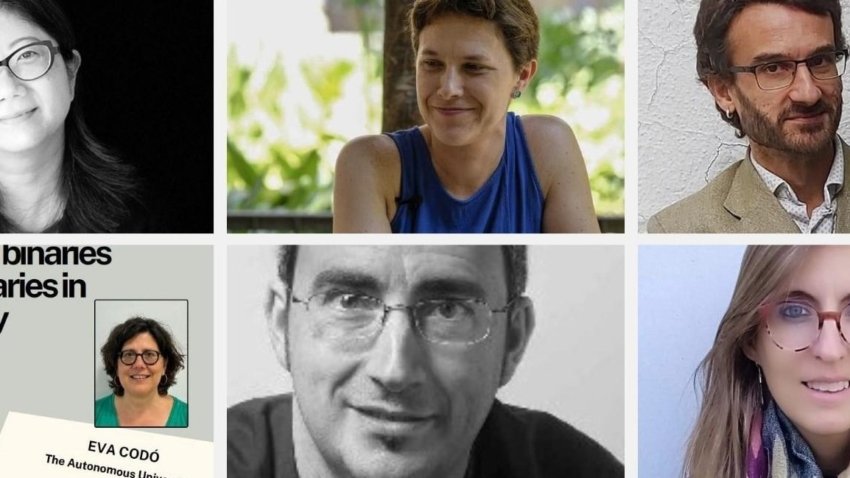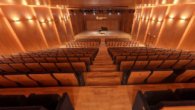The First to Begin This Autumn Was the Josep Pla Chair at Stanford Universitywith Oriol Ponsatí-Murlà. Under the Title Saved in Translation: An intellectual Topography of the Mediterranean, from Classical Antiquity to NowadaysThis ten-we Course examines the Mediterranean as a Space of Encounter and Cultural Exchange from Classical Antiquity to the Present. It Emphasises How Translation – From Greek to Arabic, Arabic to Latin, and from Classical to Romance Languages - Has Shaped Our understanding of Western Culture. ” The aim is to Chart a Cultural Topography That Demonstrates How These Dialogues and Translations have Fundamental Formed Ideas of the Western Tradition and Contributed to Their Diffusion Worldwide.
In september, the First Edition of the Nacs Itinerant Chair ALSO BEGINS, HOSDED AT THE UNIVERSITY OF MASSACHUSETTS-AMHERST From 29 SEPEMBER TO 3 OCTOBER. LED by Teacher H. Rosi Song, It Combines Academic Research, Public Outreach, and Gastronomic Experience. Song will present the Relish Project (Reframing European Gastronomy Legacy Through Innovation, Sustainability and Heritage), Which Rethinks Recipes As Educational Tools Linked to Cultural Identity, Sustainability, and Climate Change, in a Public Event in Collection with the University’s Catering Services. In addition, she will Teach in session in the Course Spanish/Catalan 330, Food and Famine in Spanish Literatureand Deliver in the Five College Consortium On Gastronomy and Catalan National Identity. Her Stay Will Also Include Consultations with Postgraduate Students Specialising in Catalan Studies.
At the end of sepebre Jaume Subirana (UPF) Will Participation As Visiting Professor at the Joan Coromines Chair At the University of Chicago, Teaching the Course “Literary Polysystems in Spain: Liteature, Language, and Place”in which he will explore the rich and diverse heritage of the Iberian Peninsula that has taken away throughout history despite the homogeneising forces of globalization. The coexistency of different languages and literatures offers an extraordinary laboratory for cultural research, and what some regard as challenges, peculiarariosis, or mere curiosis are in fact vibrant and Flourishing Cultural Communities. The Course Will Address the Emergence and Growth of Literary Traditions in Asturian, Basque, and Galician, with the aim of reflecting on the concept of “Tradition” in Contemporary literary practice the study of Three Fundamental Works of Catalan Literature: Broken mirror, The gray notebookand Shudder memory.
From 6 to 10 october, the Mercè Rodoreda Chair At the Graduate Center of the City University of New York Will Host Eva Codó (UAB) In a seminar that examines Language Police implemented in Catalonia over the past decade.
Associate Professor Míriam Cabré (University of Girona) You have been invited to the University of California-Berkeley for a Teaching residence from 27 October to 19 Nov. “Culture and Power in Medieval Iberia: The Catalan Troubadours”. She will also participate in sessions with students in Catalan Language Classes TAUGHT BY Lecturer Ana-Belén Redondo.
Finally, Marta Anton, Associate Professor at UPFWill Teach to Seminar Where “Picasso y Cuba: (re) Decolonial interpretations in art and literature” ((Picasso and Cuba: Decolonial (re) Interpretations in Art and Literature) at the Catalan Chair At the University of Havana. The AIM OF THE SEMINAR IS TO Analyse the Artistic Resonances of Picasso in Cuban Visual Arts and Literature, present in the work of Leading Cuban Painters and Writers of the Twentieth and Twenty-First Centuries.
In addition to expanding academic exchange in Catalan studies with leading international universities, thesis activities clearly align with the strategic Priorities of the Institut Ramon Llull to Support Creators, Academics, and intellectuals so that may participate in and influence debate on the greater contemporary challenge Plural and Critical Perspectives.










